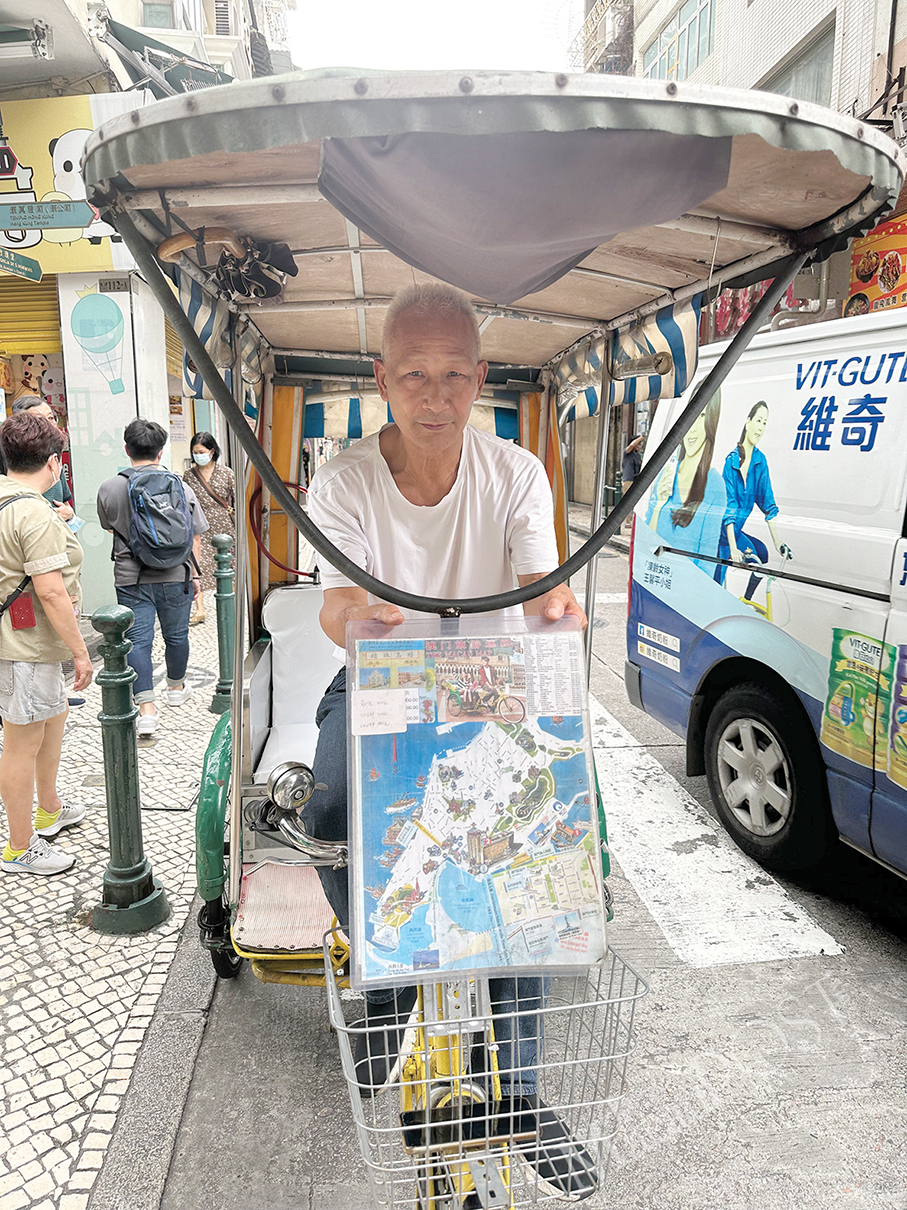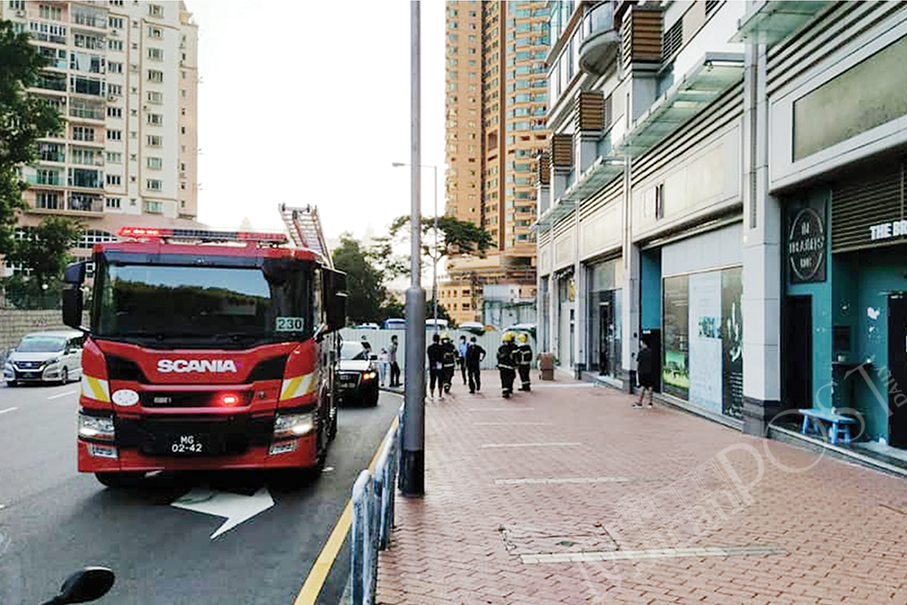Commentary by Ginnie Liang
With fewer than 50 pedicabs still in operation in Macau, the sector is clearly declining compared to its peak of more than 700 tricycles decades ago.
The Macau Post Daily experienced a traditional pedicab ride yesterday and conducted an online interview with a representative of the erstwhile association of pedicab riders to discuss the troubled sector’s uncertain future.
According to a travel blog, Macau’s current type of pedicab was introduced in 1948. At its peak, Macau had more than 700 pedicabs complete with about 100 stops.
Just a few decades ago, most people in Macau were still poor and the pedicabs offered them a relatively inexpensive mode of transport and even a source of income for hundreds of riders.
A short tour of the city
The Macau Post Daily yesterday got a real taste of the legendary ride, starting with a row of pedicabs parked outside Hotel Lisboa.
The rider was a 68-year-old local man surnamed Leong, who said that he has been working in the sector for over 30 years. He first showed me a travel map where differently priced tour plans were listed, ranging from 200 to 500 patacas. Leong agreed to take me from the hotel to the Ruins of St. Pauls.
The whole journey took just five minutes. However, the drop-off spot was not at the Ruins of St. Paul’s but at the nearby (sort of) Rua dos Ervanários, which Leong said “was because it is difficult to pedal up the slope”. However, the short ride still cost 200 patacas.
Leong admitted that in order to save energy and to drive “more smoothly”, his pedicab is nowadays equipped with an electric motor which, he said, his peers were using as well.
Leong said that due to the three-year COVID-19 pandemic, there was a great decline in passengers, which made it more difficult earn enough money to make a living.
He revealed that, occasionally, he can earn some extra income such as by receiving a “commission” for taking his passengers to some restaurants or saunas.
Repackage it, or let it die out naturally?
Meanwhile, Chan U Kin, who one headed the now defunct association of pedicab riders, told The Macau Post Daily by phone yesterday that back in 2013, his association and local film director Maxim Bessmertny collaborated to produce a Macau microfilm called “Tricycle Thief”, which won the Best Short Film Award at the Toronto International Film Festival, the first Macau microfilm to win this award, in order to “protect the history”.
Tricycle is an alternative name for Macau’s pedicabs.
“We were trying to repackage the tricycle, but the government wants it to die out naturally,” said Chan, pointing out that even though the film was a great success, the association’s passion for its traditional mode of transport “faded away” and the association was then dissolved because of the difficulties it faced, such as operational difficulties – parking and maintenance accounted for the biggest cost, as the pedicabs needed to be protected well due to their “fragile nature”.
Besides, Chan added, fewer and fewer people in Macau know how to repair pedicabs, apart from the fact that the business is heavily dependent on the weather.
“The combination of these factors makes it very difficult for the industry to survive, let alone encourage young people to enter the industry,” Chan underlined, describing it “impossible” for young people to enter the sector.
Chan, who was never a pedicab rider but headed the sector’s association because he was keen to keep the sector running and “protect its history,” works as a programme producer.
After my rather short but not exactly cheap pedicab ride yesterday, I can only say that Macau’s last few pedicab riders are facing an uncertain future. But, on the other hand, why isn’t Macau able to preserve one of the most peculiar aspects of its distinctive heritage?

Leong shows his alternative routes on a map yesterday after arriving at Rua dos Ervanários near the Ruins of St. Paul’s.
– Photos by Ginnie Liang

A local pedicab rider surnamed Leong pedals along San Ma Lou (Avenida de Almeida Ribeiro) en route to the Ruins of St. Paul’s yesterday.








